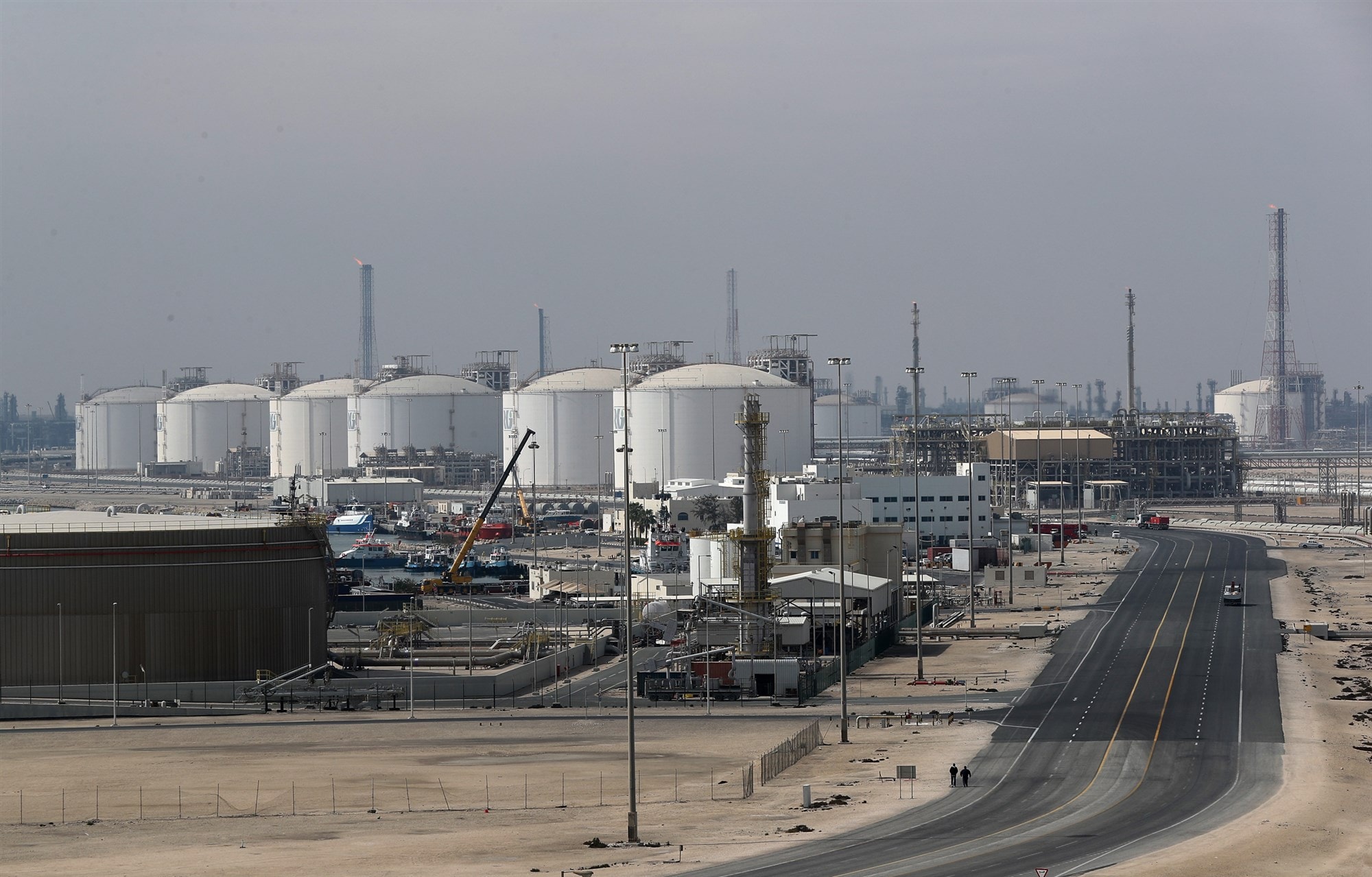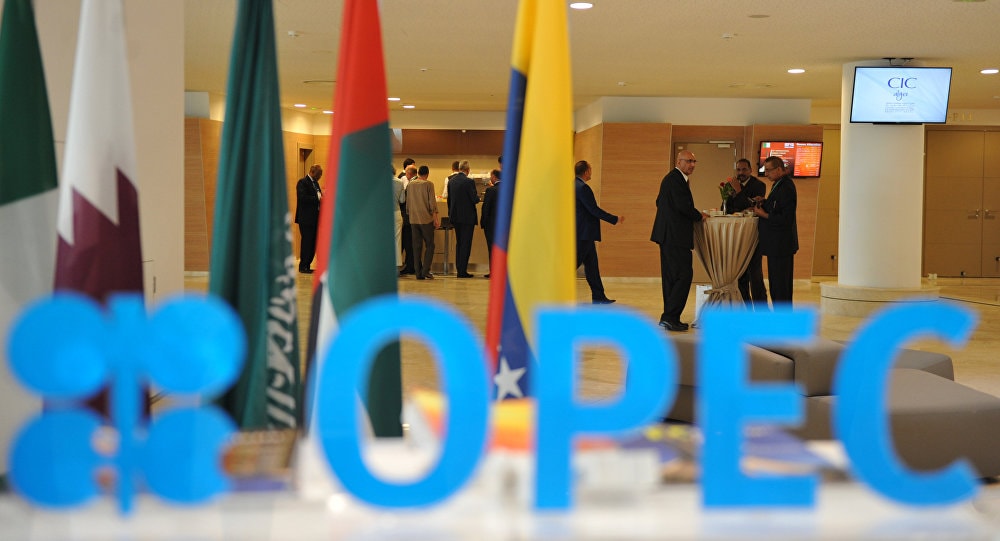Qatar withdrawal: “Bad omen” for OPEC
(Baonghean) - Qatar's decision to leave OPEC after 57 years of association is a symbolic move at this time. For Qatar, this is a political and economic strategy, but for OPEC, this will be a "bad omen" for this nearly 60-year-old organization.
 |
| Ras Laffan Industrial City - Qatar's liquefied gas production site. Photo: AFP |
Reason for breakup
Qatar will officially leave the Organization of the Petroleum Exporting Countries (OPEC) in January 2019. The announcement by the Gulf country's officials came just before the group's meeting on December 6 in Vienna, Austria, to discuss cutting oil production next year. Qatar's decision was relatively surprising because, although it was not part of the group of five countries that initiated OPEC, Qatar joined the organization a year after its establishment and became a fairly active member. The reason for leaving after more than half a century of association with OPEC, given by Doha officials, was because they wanted to focus on gas - a field in which the country is the world's largest exporter. A rather brief explanation to the world, but the hidden reason behind Qatar's decision is said to be not so simple.
Although denying that the decision to leave OPEC was related to diplomatic tensions between Qatar and Gulf countries over the past year, Qatari officials admitted to being “disappointed” at being in an organization where their voice is increasingly worthless. “The oil market is controlled by an organization that is controlled by a country,” Qatar’s new Energy Minister Saad al-Kaabi said at a press conference in Doha. Although he did not name the country, the “country” al-Kaabi mentioned seemed to refer to Saudi Arabia, OPEC’s largest oil producer and currently the dominant member of the organization.
The Qatari Energy Minister's views were also shared and supported by Iran. Iran's OPEC representative, Hossein Kazempour Ardebili, said Qatar's decision reflected growing anger among oil producers over what he described as a unilateral approach by OPEC's Joint Ministerial Monitoring Committee, led by Saudi Arabia and Russia, in deciding on oil production cuts.
In previous decades, OPEC countries generally recognized that their interests were aligned with the organization, according to some independent observers. But now there seems to be a growing resentment, with many believing that Saudi Arabia’s best interests may not necessarily be the best interests of the rest of the group.
Not to mention the “unsmooth” relationship between Qatar and Saudi Arabia, which will certainly cause disagreements in the process of making joint decisions within OPEC. Saudi Arabia and Qatar are still tense, since Saudi Arabia and three other Gulf countries, Bahrain, the United Arab Emirates (UAE) and Egypt, severed diplomatic relations and closed shipping routes with Qatar in June 2017, accusing the Doha government of supporting terrorism. While these diplomatic tensions have not been resolved, Qatar’s withdrawal from OPEC will probably make the situation even more serious.
Apart from political reasons, the decision to withdraw from OPEC is said to be part of Qatar's strategy of free economic development. Once no longer a member of OPEC, Qatar is no longer bound by its oil export policy. Moreover, the country will focus on developing natural gas with the goal of seeking global dominance in this field.
Qatar holds the world's largest gas field and is planning to expand its gas production capacity to 100 million tons (currently at 77 million tons) and will do so before the gas market becomes too tight early next decade. This is considered a strategic direction of Qatar to restore the economy under the pressure of embargo and blockade of Gulf countries.
 |
| Qatar announced it would leave OPEC just before the organization's meeting scheduled for December 6 in Vienna, Austria. Photo: AFP |
OPEC's cracks
Qatar’s withdrawal from OPEC is not expected to have a major impact on the international oil market next year, as Qatar’s oil production only accounts for about 2% of OPEC’s crude oil production. However, the departure of this long-time member is a “big deal” for the image and solidarity of OPEC.
This is not the first time OPEC has seen members say goodbye. Indonesia joined in 1962 and suspended its membership twice, most recently in November 2016. Other members such as Gabon and Ecuador also suspended their membership in the 1990s and returned a few years later. However, the case of Qatar has attracted more attention. Out of the five founding countries – Iran, Iraq, Venezuela, Kuwait and Saudi Arabia – Qatar is the longest-standing member of OPEC. As one of the richest countries in the world, with abundant financial resources, Qatar has an important voice among OPEC countries.
For many years, Qatar has maintained an important bridge between countries in the alliance. In addition, this country also plays an intermediary role to help connect OPEC with other major oil competitors such as Russia or the US. 2 years ago, when oil prices fell to a record low of about 30 USD/barrel, Qatar, then holding the rotating presidency of OPEC, played an important role in helping to build an agreement to cut production. After a difficult negotiation process, Qatar had to convince countries in the organization, especially Saudi Arabia - the largest oil exporter, to agree for the first time in 8 years to cut oil production. This is considered a big step forward to help rebalance the market and reduce excess production, thereby pulling oil prices out of record lows. Thus, Qatar's decision to leave OPEC will leave a void of an active member in this organization.
 |
| Qatari Energy Minister Saad al-Kaabi. Photo: Reuters |
In addition, Qatar's departure, along with dissatisfaction with the dominance of some countries in OPEC, shows that the organization is being divided and seriously "cracked". In the context of OPEC trying to attract new members, Qatar's recent decision will raise doubts about the reputation and image of this organization. And within OPEC, Qatar's withdrawal may pave the way for other small members to do the same. And thus, the disintegration of OPEC is a possible prospect. According to some experts, even if OPEC does not literally disintegrate, the role of this organization may gradually become "insignificant" if the "crack" continues to widen.
In the short term, this event will certainly affect the confidence and ability of OPEC to stabilize the oil market. Currently, oil prices are below 50 USD/barrel, the lowest level in nearly 14 months. Upcoming OPEC policy discussions will no longer include Qatar's participation in its important connecting role. And this is what makes investors extremely worried as well as poses a challenge to OPEC's organizational structure. Not to mention, Qatar's departure from OPEC also increases concerns that Saudi Arabia, Russia and the US - the world's three leading oil producers, will gain more control in making global oil policy decisions, when geopolitics has become one of the main driving forces behind oil prices.
In short, Qatar's withdrawal is the first sign of a volatile future in OPEC./.
